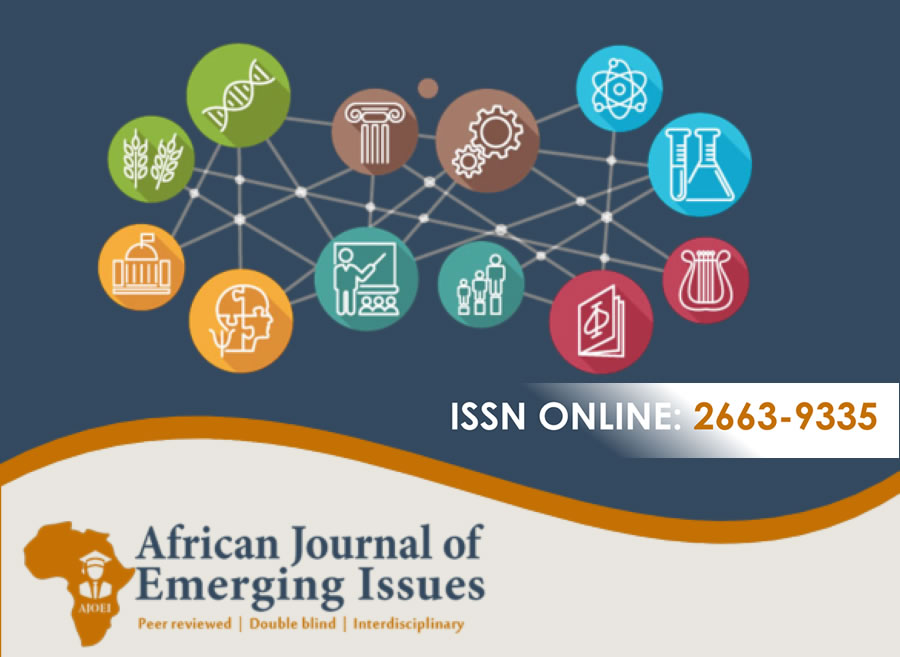EFFECTIVENESS OF MINDFULNESS-BASED COGNITIVE THERAPY IN THE TREATMENT OF DEPRESSION AMONG CAREGIVERS OF CANCER PATIENTS IN NAIROBI COUNTY, KENYA
Abstract
Purpose of the study: The purpose of this study was to evaluate the effectiveness of Mindfulness-Based Cognitive Therapy (MBCT) in treating depressive symptoms among caregivers of cancer patients in Nairobi County, Kenya.
Methodology: A quasi-experimental design with 69 caregivers from two cancer centers compared the MBCT intervention against treatment as usual, with depression assessed using BDI-II at baseline, midline, and endline. Data analysis used SPSS with descriptive statistics, inferential tests, and Cohen's d effect sizes to evaluate intervention effectiveness.
Findings: The experimental group showed a steady decline in the mean scores of depression (M = 12.97, SD = 3.68), while the control group’s scores increased (M = 21.42, SD = 5.90). This trend continued at endline, with the experimental group’s scores declining further (M = 10.58, SD = 4.01), contrasted by persistently elevated scores in the control group (M = 20.19, SD = 7.85). The difference between groups at endline was statistically significant (p < .001), with large effect sizes observed at both midline (Cohen’s d = −1.713) and endline (Cohen’s d = −1.513), indicating robust clinical relevance. The findings demonstrate that MBCT is a highly effective intervention for treating depressive symptoms among caregivers of cancer patients.
Conclusion: The study concludes that MBCT effectively reduced depression among cancer caregivers in Nairobi County.
Recommendations: The study recommends implementing routine mental health screening for caregivers in oncology settings. The study recommends developing culturally adapted MBCT materials accessible to caregivers with varying literacy levels.
Keywords: Mindfulness-Based Cognitive Therapy, Depression, Caregivers, Cancer Patients, Nairobi County, Kenya
References
Abeysinghe Mudiyanselage, C. A. K. R., Ewens, B., Smyth, A., Dickson, J., & Ang, S. G. M. (2024). Enablers and Barriers of Online Mindfulness-Based Interventions for Informal Carers: A Mixed-Methods Systematic Review. Mindfulness, 15(6), 1257–1274. https://doi.org/10.1007/s12671-024-02365-y
Applebaum, A. J., & Breitbart, W. (2013). Care for the cancer caregiver: A systematic review. Palliative and Supportive Care, 11(3), 231–252. https://doi.org/10.1017/S1478951512000594
Beck, A. T., & Steer, R. A. (1993). Depression Inventory Manual. Psychological Corporation.
Beck, Steer, R. A., Ball, R., & Ranieri, W. F. (1996). Comparison of Beck Depression Inventories–IA and –II in psychiatric outpatients. Journal of Personality Assessment, 67(3), 588–597. https://doi.org/10.1207/s15327752jpa6703_13
Chayadi, E., Baes, N., & Kiropoulos, L. (2022). The effects of mindfulness-based interventions on symptoms of depression, anxiety, and cancer-related fatigue in oncology patients: A systematic review and meta-analysis. PloS One, 17(7), e0269519. https://doi.org/10.1371/journal.pone.0269519
Ediz, B., Ozcakir, A., & Bilgel, N. (2017). Depression and anxiety among medical students: Examining scores of the beck depression and anxiety inventory and the depression anxiety and stress scale with student characteristics. Cogent Psychology, 4(1), 1283829. https://doi.org/10.1080/23311908.2017.1283829
Eisendrath, S. J., Gillung, E., Delucchi, K. L., Segal, Z. V., Nelson, J. C., McInnes, L. A., Mathalon, D. H., & Feldman, M. D. (2016). A Randomized Controlled Trial of Mindfulness-Based Cognitive Therapy for Treatment-Resistant Depression. Psychotherapy and Psychosomatics, 85(2), 99–110. https://doi.org/10.1159/000442260
Foroughi, A., Sadeghi, K., Parvizifard, A., Parsa Moghadam, A., Davarinejad, O., Farnia, V., & Azar, G. (2020). The effectiveness of mindfulness-based cognitive therapy for reducing rumination and improving mindfulness and self-compassion in patients with treatment-resistant depression. Trends in Psychiatry and Psychotherapy, 42(2), 138–146. https://doi.org/10.1590/2237-6089-2019-0016
Gravetter, F. J., & Forzano, L. B. (2012). Research Methods for the Behavioral Sciences (4th ed.). Wadsworth.
Hofmann, S. G., Sawyer, A. T., Witt, A. A., & Oh, D. (2010). The effect of mindfulness-based therapy on anxiety and depression: A meta-analytic review. Journal of Consulting and Clinical Psychology, 78(2), 169–183. https://doi.org/10.1037/a0018555
Hong, B., Yang, S., Hyeon, S., Kim, S., & Lee, J. (2023). Third-wave cognitive behavioral therapies for caregivers of cancer patients: A scoping review. BMC Complementary Medicine and Therapies, 23(1), 360. https://doi.org/10.1186/s12906-023-04186-3
Mehranfar, M., Younesi, J., & Banihashem, A. (2012). Effectiveness of Mindfulness-Based Cognitive Therapy on Reduction of Depression and Anxiety Symptoms in Mothers of Children With Cancer. Iranian Journal of Cancer Prevention, 5, 1–9.
National Cancer Institute. (2011). Definition of caregiver—NCI Dictionary of Cancer Terms—NCI (nciglobal,ncienterprise) [nciAppModulePage]. https://www.cancer.gov/publications/dictionaries/cancer-terms/def/caregiver
Omungo, R. M. (2020). Efficacy of Mindfulness-Based Cognitive Therapy Self-Help (MBCT-SH) as an Intervention for Anxiety And Depression for Older Clergy: A Study of Clergy from Selected Christian Denominations in Nairobi County, Kenya.
Piet, J., & Hougaard, E. (2011). The effect of mindfulness-based cognitive therapy for prevention of relapse in recurrent major depressive disorder: A systematic review and meta-analysis. Clinical Psychology Review, 31(6), 1032–1040. https://doi.org/10.1016/j.cpr.2011.05.002
Ranjbar Noei, F., Atashi, V., & Ashouri, E. (2023). Mindful self-compassion training program in the family caregivers of patients with cancer: A quasi-experimental study. The Journal of Mental Health Training, Education and Practice, 18(4), 317–324. https://doi.org/10.1108/JMHTEP-08-2022-0068
Sanna, K. (2022). Application and effectiveness of Cognitive Behavioural Therapy among informal caregivers of chronically ill people- literature review. Psychoterapia, 199, 65–74. https://doi.org/10.12740/PT/146397
Segal, Williams, J. M. G., & Teasdale, J. D. (2002). Mindfulness-based cognitive therapy for depression: A new approach to preventing relapse (pp. xiv, 351). Guilford Press.
Segal, Williams, M., & Teasdale, J. (2018). Mindfulness-Based Cognitive Therapy for Depression, Second Edition. Guilford Publications.
Seritan, A. L., Iosif, A.-M., Prakash, P., Wang, S. S., & Eisendrath, S. (2022). Online Mindfulness-Based Cognitive Therapy for People with Parkinson’s Disease and Their Caregivers: A Pilot Study. Journal of Technology in Behavioral Science, 7(3), 381–395. https://doi.org/10.1007/s41347-022-00261-7
Wachira, S. (2023). The Effectiveness of Mindfulness Based Cognitive Behavioural Therapy (MBCBT) in the treatment of PTSD among couples at PCEA Churches, Nairobi, Kenya. International Journal of Innovative Science and Research Technology, Volume 8,(Issue 7,)
Wang, & Gorenstein, C. (2013). Psychometric Properties of the Beck Depression Inventory-Ii: A Comprehensive Review. Revista Brasileira de Psiquiatria, 35, 416–431.
Wood, A. W., Gonzalez, J., & Barden, S. M. (2016). Mindfulness-based cognitive therapy and caregivers of cancer survivors. In Mindfulness-based cognitive therapy: Innovative applications (pp. 215–227). Springer International Publishing/Springer Nature. https://doi.org/10.1007/978-3-319-29866-5_18
Yan, X., Xiong, Z., Sun, H., Li, J., Gao, Y., Zhang, J., & Ding, X. (2024). Effects of an online mindfulness-based cognitive therapy for caregivers of children with allergic rhinitis. Frontiers in Psychology, 15, 1372586. https://doi.org/10.3389/fpsyg.2024.1372586





